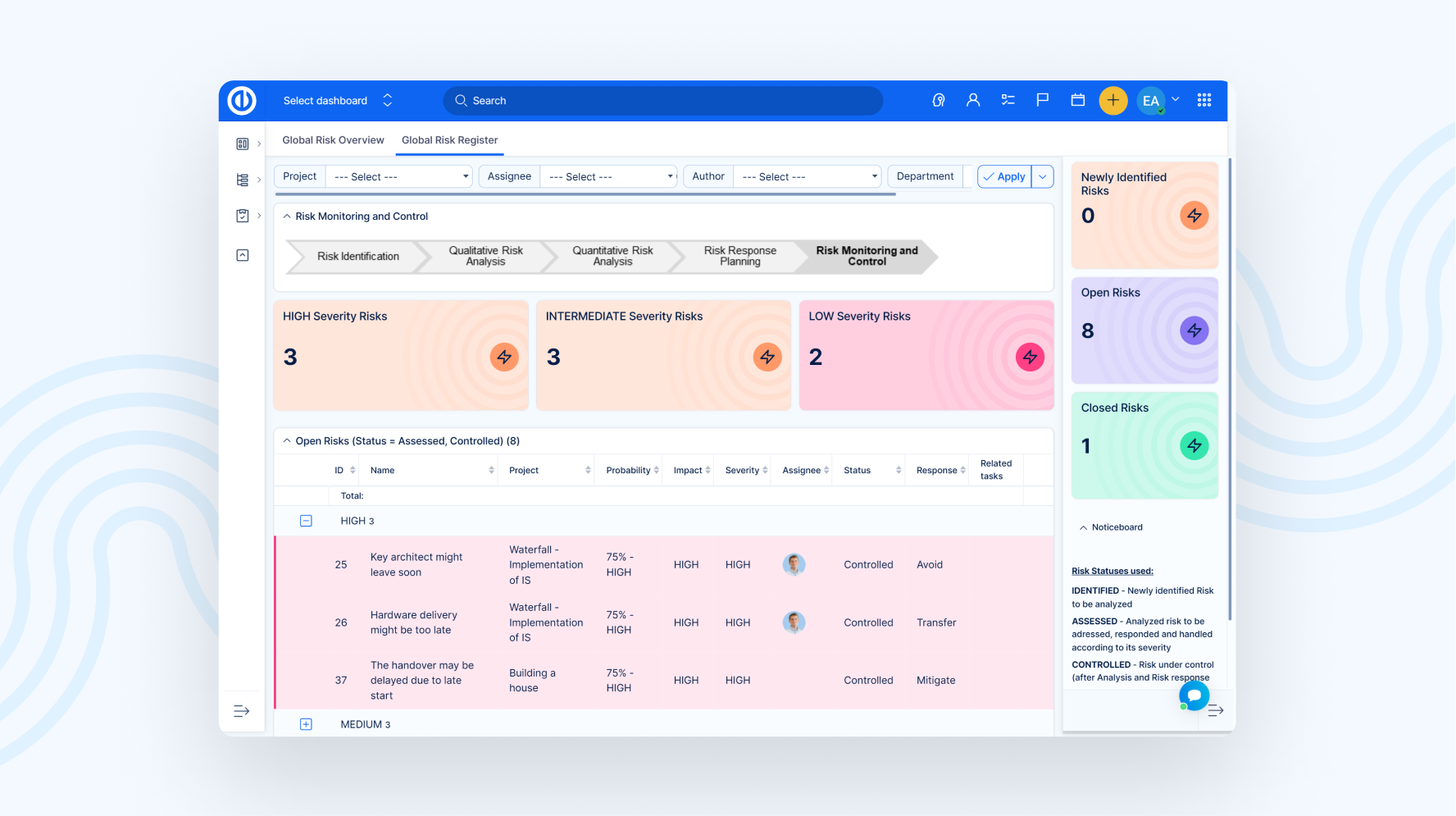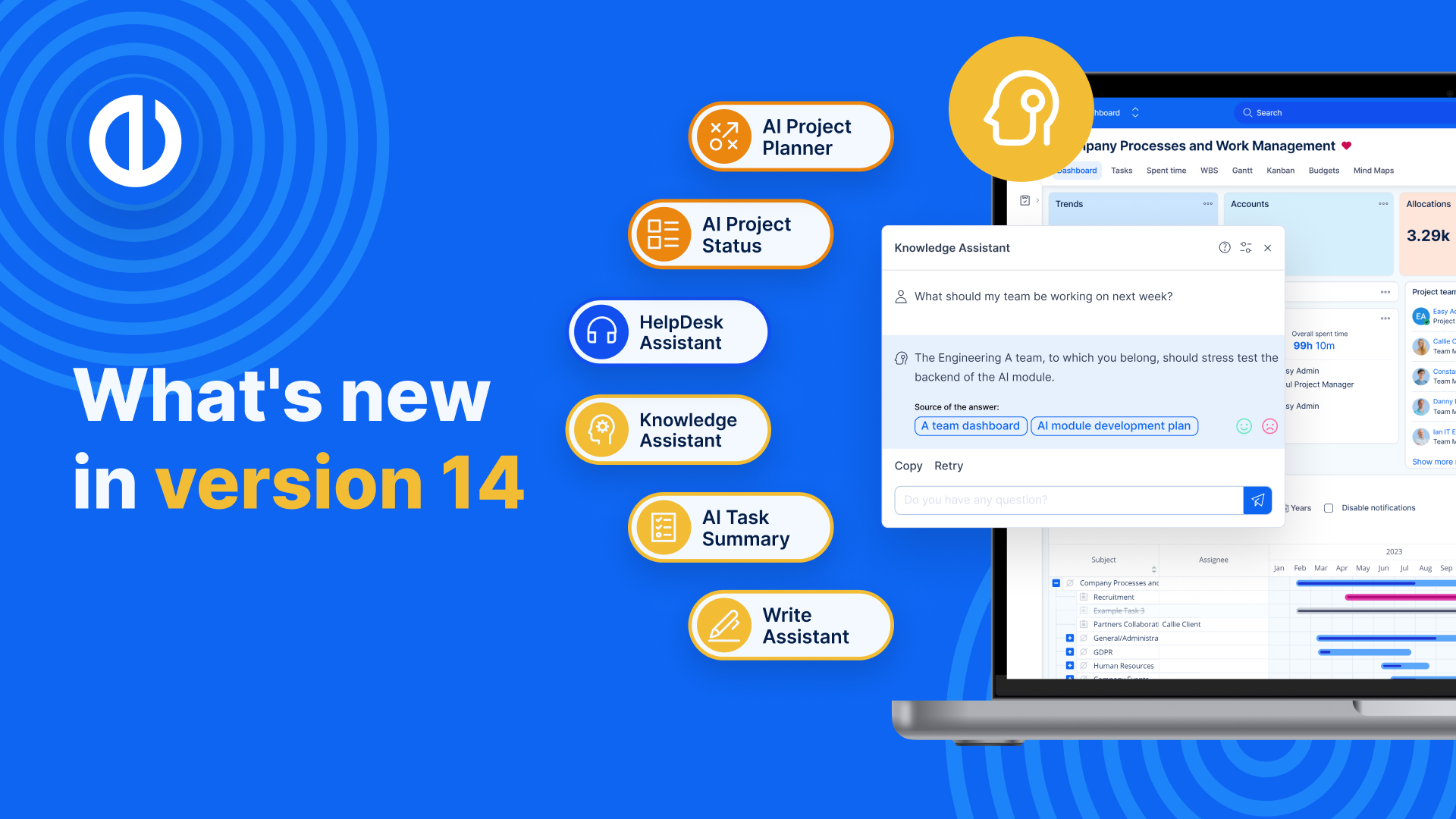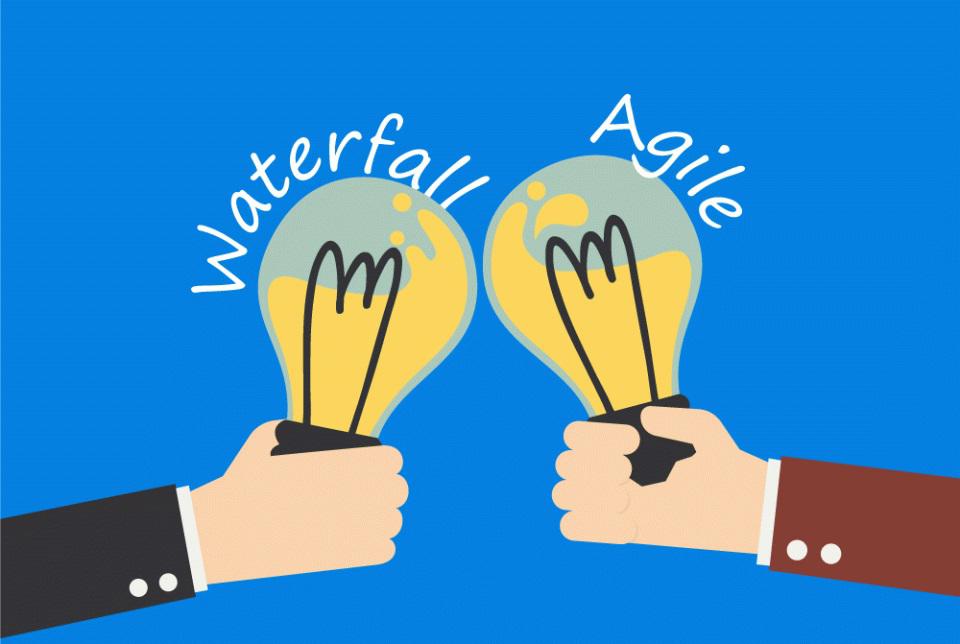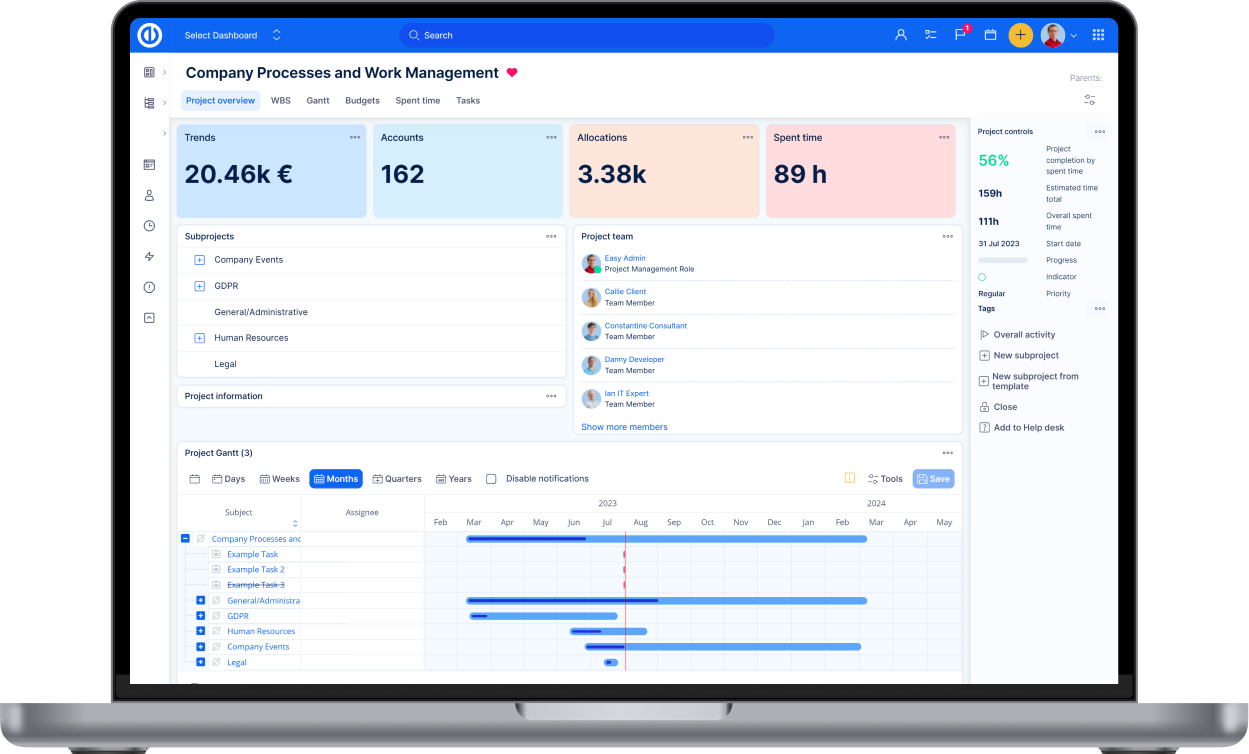The role of hybrid project management in redefining technology projects
Many traditional project management approaches lack flexibility for modern technology projects. That can result in siloed information, disjointed workflows, and hindering the efficiency.
Discover how a hybrid methodology enhances adaptability, improves resource allocation, and fosters better communication, redefining project management success in the digital age.

Table of contents
Struggle to lead digital transformation projects
Need for adaptability of hybrid project management
Agile or waterfall? Why not both?!
Benefits of hybrid project management
Key components of hybrid project management
1. Blending traditional and agile practices
2. Flexibility and adaptability
3. Stakeholder engagement
4. Iterative development with structured planning
Reshaping project approaches: Unlock the versatility of hybrid project management
Struggle to lead digital transformation projects
Traditional methodologies like Waterfall often lack the flexibility needed for modern technology projects. This rigidity can be a major drawback for teams that require adaptability to handle evolving project requirements.
You might have identified a struggle to meet the holistic needs of engineering, IT, and software teams that manage multiple, interconnected projects. This can result in siloed information and disjointed workflows, hindering the efficiency of technology teams.

Obstacles that often appear in project and work management
Also, a slow recognition of potential bottlenecks can escalate into project-wide problems, affecting outcomes and potentially leading to client penalties or loss of contracts.
Need for adaptability of hybrid project management
Technology projects often face unpredictable challenges. As technology becomes more integrated into business processes, the need for agility has increased dramatically.
It demands quick responses to project scope, budget, or timeline changes. This implicates the need for an approach that would be flexible enough to face all the challenges.
Agile or waterfall? Why not both?!
The appropriate project and work management suite when used well will break the mould with robust hybrid project management capabilities, blending the structured approach of waterfall with the agility of agile methodologies. It should accommodate the diverse project management styles that modern teams need, ensuring they can pivot and adapt without compromising delivery or quality.
Benefits of hybrid project management
By blending the structured rigour of Waterfall with the dynamic of Agile methodologies, you can harvest the needed aspect from both.
Hybrid project management enables organizations to optimise resource allocation, mitigate risks more effectively, and facilitate continuous improvement. This balanced approach supports the diverse needs of engineering, IT, and software teams, allowing them to manage multiple interconnected projects efficiently and deliver incremental value throughout the project lifecycle.
It helps teams to adapt their strategies in response to changing requirements and unforeseen challenges while maintaining a clear project vision and goals. Overall, your organization can benefit from increased flexibility, improved communication, and better resource allocation.

Risk management dashboard in Easy Redmine suite
Key components of hybrid project management
By implementing hybrid project management, you will gain the advantage of a versatile and precise approach to managing complex projects, particularly in technology-driven industries where structure and flexibility are essential for success. Let me guide you through the key components:
1. Blending traditional and agile practices
Hybrid project management combines the structured approach of traditional methodologies with the flexibility of agile methods. This allows teams to leverage the best of both worlds, using waterfall techniques for phases that require clear sequential progression, while applying agile principles for more dynamic aspects of the project.
For example, hardware design projects may follow a waterfall approach, while accompanying software development can adopt agile practices to allow for rapid iteration and flexibility.
2. Flexibility and adaptability
A core component of hybrid project management is its ability to adapt to changing project requirements and uncertainties. This approach empowers teams to respond quickly to evolving needs, whether it's adjusting resources, timelines, or project scope.
3. Stakeholder engagement
Collaboration tools foster an environment where information flows freely between stakeholders, ensuring quick access to updates and allowing team members to respond promptly to changes. This enhanced communication improves team synergy and project cohesion, leading to better outcomes and increased stakeholder satisfaction.
4. Iterative development with structured planning
Hybrid project management methodology combines the iterative nature of agile methodologies with the structured planning of traditional approaches. This is evident in features like sprint planning and management, where work is planned and executed in manageable chunks. This approach leads to better focus, quicker iterations, and the ability to adapt to changes rapidly, ensuring projects stay aligned with evolving requirements.
Additionally, the use of Kanban boards enhances team visibility and workflow management by clearly displaying tasks, their status, and ownership. This visual tool helps teams prioritise work, identify bottlenecks, and streamline processes, promoting continuous delivery and improvement.
Unlock the versatility of hybrid project management approach
Some project and work management tools emphasize simplicity and user collaboration which often means a lack of the complex, multi-layered project management capabilities required for dynamic and structured planning. Those CWM platforms fall short of addressing the complex, multifaceted needs of technology teams engaged in digital transformation projects.
Easy Redmine provides you a wide range of tools to use the ones that are needed at the moment, no matter whether from agile or waterfall methodology.
This hybrid approach ensures that whether you need the clear, sequential progression of Waterfall or the flexible, iterative cycles of Agile, Easy Redmine is equipped to handle both seamlessly under one unified platform.
Don't let the complexity of your projects be a barrier to success! Easy's intuitive and adaptive project and work management suite will enable you to tailor your workflow, customize task management, and enhance team collaboration to transform complex challenges into opportunities: try Easy Redmine!



